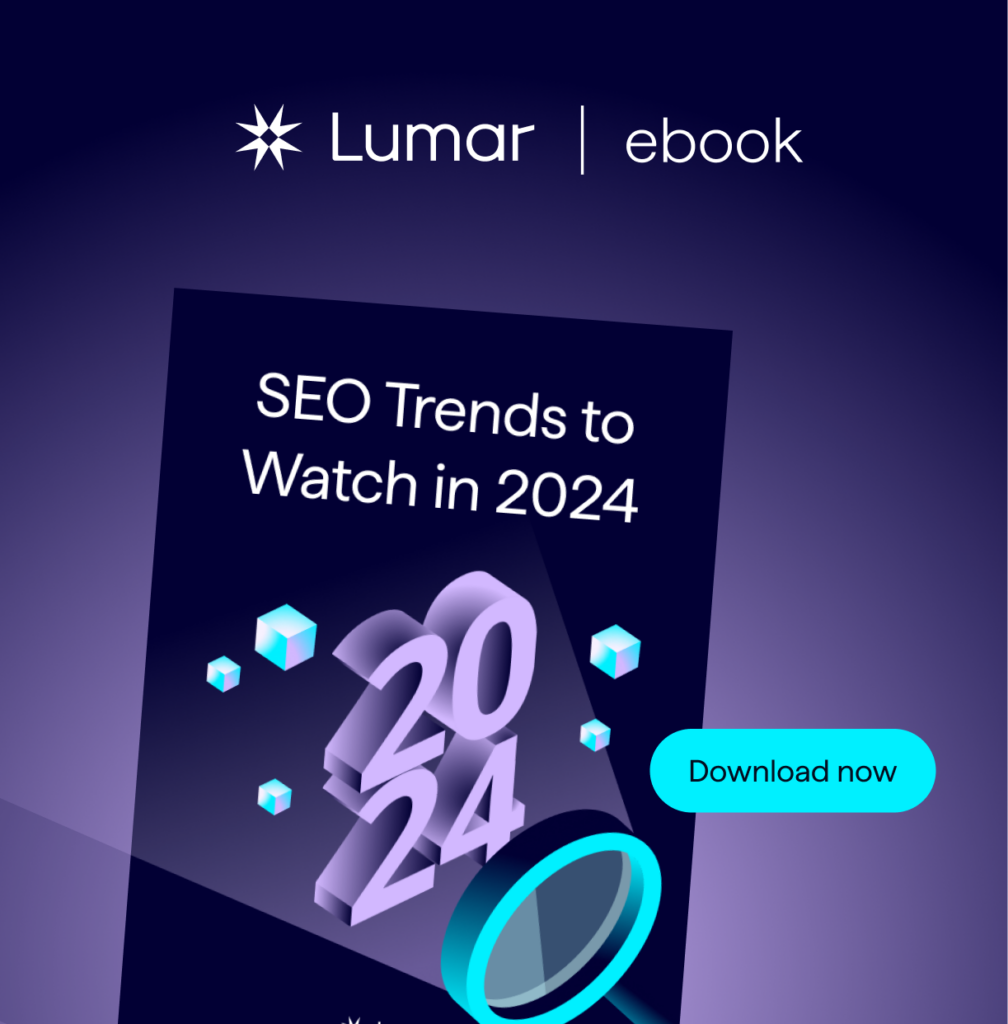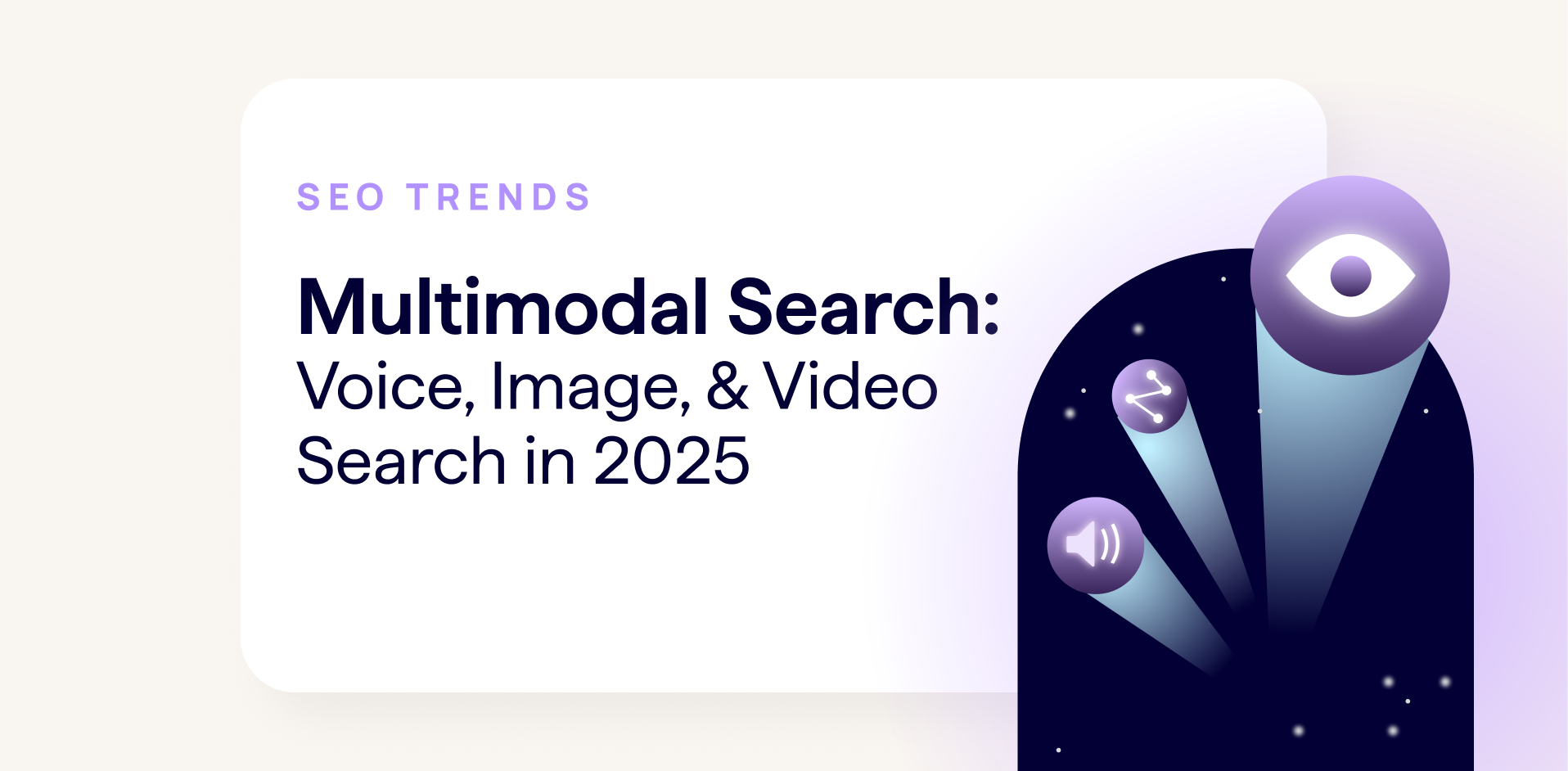Keeping Up With Rapid Search Engine Updates in 2024 and Beyond
Search engines are always evolving. But with the introduction of new AI SERP features like Google’s SGE and Bing’s adoption of GPT-4 in recent months — not to mention new core algorithm updates like Google’s Helpful Content System and its prioritization of first-person “Hidden Gems” in search results — it feels like the changes in search are coming at an accelerated pace.
With a rapidly evolving search landscape, SEOs who narrowly rely on a set of well-trodden tactics rather than focusing on the bigger picture and creating websites that are poised to best serve their users are already behind.
As Google Search Liaison Danny Sullivan put it on Twitter/X:
“Perhaps we need to speak more clearly that our systems are chasing what people like, so if you ‘chase the algorithm,’ you’re behind. If you chase what people like, you’re ahead of the algorithm.”
While Google and Bing may not reveal their exact ranking algorithms to the wider world, these search engine giants are not shy about flagging what is important to them — and what they look at when evaluating website quality. Google regularly publishes guidance about what they are focusing on and what they value in web content. Unsurprisingly, it’s generally centered on identifying websites that serve their users well. It makes sense that their future search algorithm updates will aim to promote websites that adhere to their stated quality guidelines.
Sullivan points out on the Search Liasion account that many of Google’s recent core algorithm updates were built on guidance the company published years ago.

SEOs who want to stay ahead of algorithm updates that could potentially tank their traffic in the future should focus, first and foremost, on building high-quality websites that offer a great user experience and genuinely helpful content.
Read the search engines’ published guidance — like Google’s Search Quality Raters Guidelines — to understand what signals they look at to determine a website’s quality. Even if not every quality marker they describe is included in the search algorithms today, chances are future algorithm updates will aim to find ways of incorporating these signals.
Addressing site quality in 2024
We’ll dig into specific UX and content aspects of high-quality websites in more detail in the next chapters [Note: download the full eBook, “2024 SEO Trends to Watch,” to access the later chapters].
But as a quick overview, SEOs who want to ensure their websites are deemed ‘high quality’ enough to rank well in 2024 should aim to review and improve:

- Site Speed: Does your page (and all of its components) load quickly?
- Core Web Vitals & Page Experience: Is your site passing the following CWV metrics?
- Interactivity & FID (First Input Delay)
- Load Time & LCP (Largest Contentful Paint)
- CLS (Cumulative Layout Shift) & Visual Stability
- Website Accessibility: Does your website comply with WCAG guidelines?

- Helpful Content: Does your content clearly answer a user’s query? Does it go above and beyond to provide useful, accurate information?
- EEAT: Does your website content demonstrate the following?
- Experience
- Expertise
- Authority
- Trustworthiness
- First-Person Perspectives: Does your content showcase authors’ first-hand experiences?
While these site quality aspects of SEO will help website teams stay ahead of new search algorithm updates, you will of course need to do some work that is more Google-focused than user-focused.
This is because your website first needs to be easily crawlable and indexable by search engines to be evaluated and ranked in the first place.
That’s where technical SEO takes center stage.
Addressing technical SEO factors

In Lumar’s recent survey of global website professionals, 49% of all respondents felt that businesses are not paying enough attention to technical SEO.
If overall site quality is key to ranking well in the arena of organic search, technical SEO is the price of admission. To even be considered for search engine rankings, your site first needs to be found, crawled, and indexed by the search engine.
As a foundational step in any SEO strategy, digital teams need to ensure their technical SEO is in good shape. This means reviewing and addressing any issues in HTTP availability, site architecture, crawlability, and indexability, among other aspects of your website’s technical health.
Technical SEO elements to review this year:
- HTTP Availability:
- If a page is not accessible to search engines via valid HTTP status codes, then it cannot be crawled by search engines. Check your site for 4xx errors, 3xx redirects that aren’t working as intended, and 5xx server issues to ensure search engine bots can access the key pages you want to rank.
- If a page is not accessible to search engines via valid HTTP status codes, then it cannot be crawled by search engines. Check your site for 4xx errors, 3xx redirects that aren’t working as intended, and 5xx server issues to ensure search engine bots can access the key pages you want to rank.
- Crawlability:
- If a page on your website cannot be crawled, it won’t be indexed by search engines. If you’re working on a particularly large website, you’ll also want to consider crawl budget and whether your site is optimized to encourage search engines to crawl your most important pages.
- If a page on your website cannot be crawled, it won’t be indexed by search engines. If you’re working on a particularly large website, you’ll also want to consider crawl budget and whether your site is optimized to encourage search engines to crawl your most important pages.
- Indexability:
- If a page is not indexed by search engines, then it cannot be ranked and will not appear to users in their search results at all. Check that you’re using noindex, nofollow, and disallow directives as intended.
- Site Architecture:
- Website architecture encompasses the various elements that form the basic structure of your website. This includes your site’s information architecture, subdomains, URL formatting, navigational elements, and internal linking structures. If your overall website structure is not optimized for search performance, then any individual page on that site is not given its best chance at being crawled and indexed, appearing in search results, and ultimately, converting into a revenue-driving asset.

Lumar for Technical SEO
For businesses looking to ensure their site’s technical SEO is poised to support their broader search strategies and improve their websites’ overall technical health, Lumar’s enterprise technical SEO platform provides a full suite of tech SEO analytics, website accessibility reports, and connected SEO workflow tools.
Book a Lumar platform demo to see the latest features in action.






